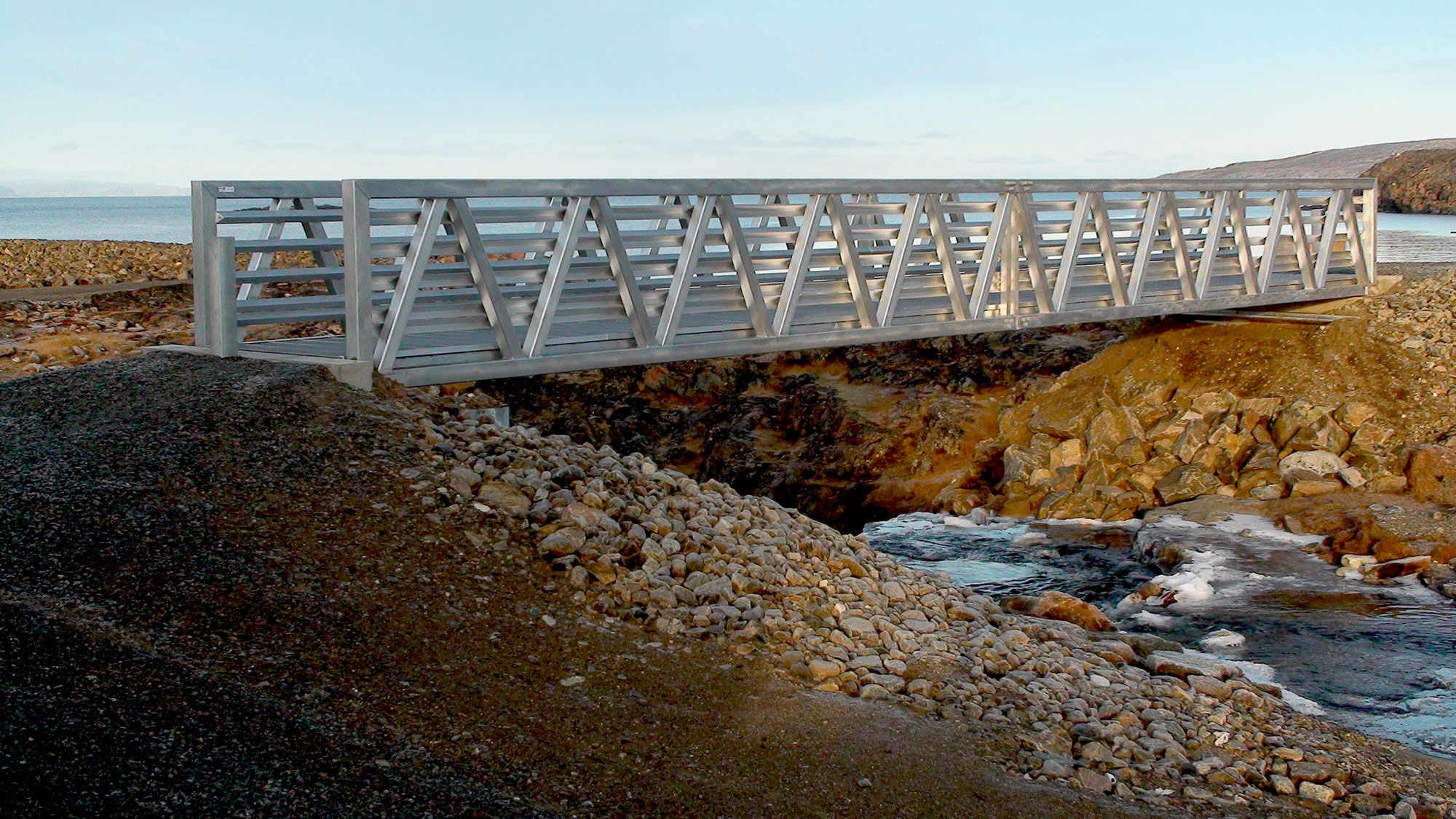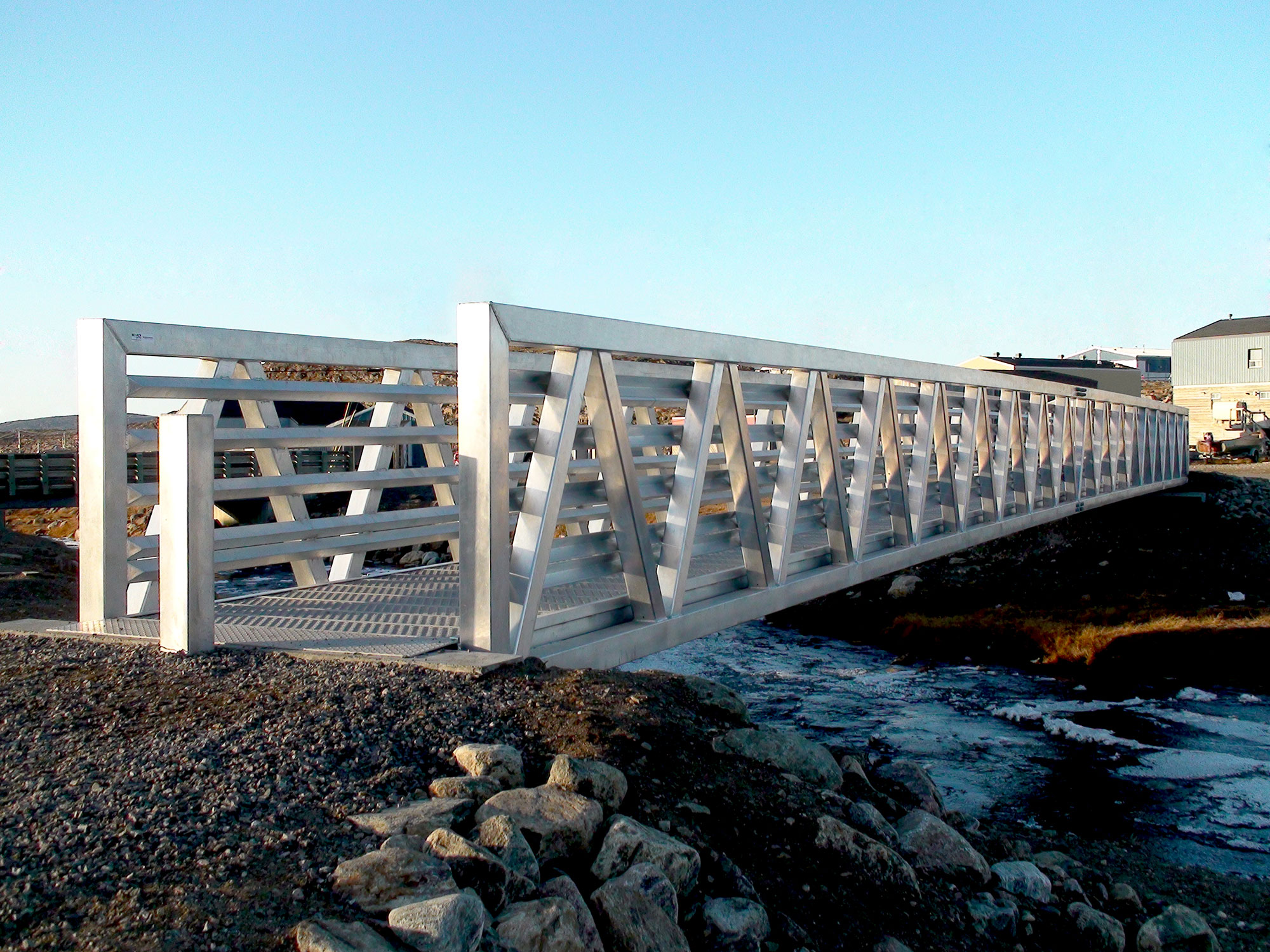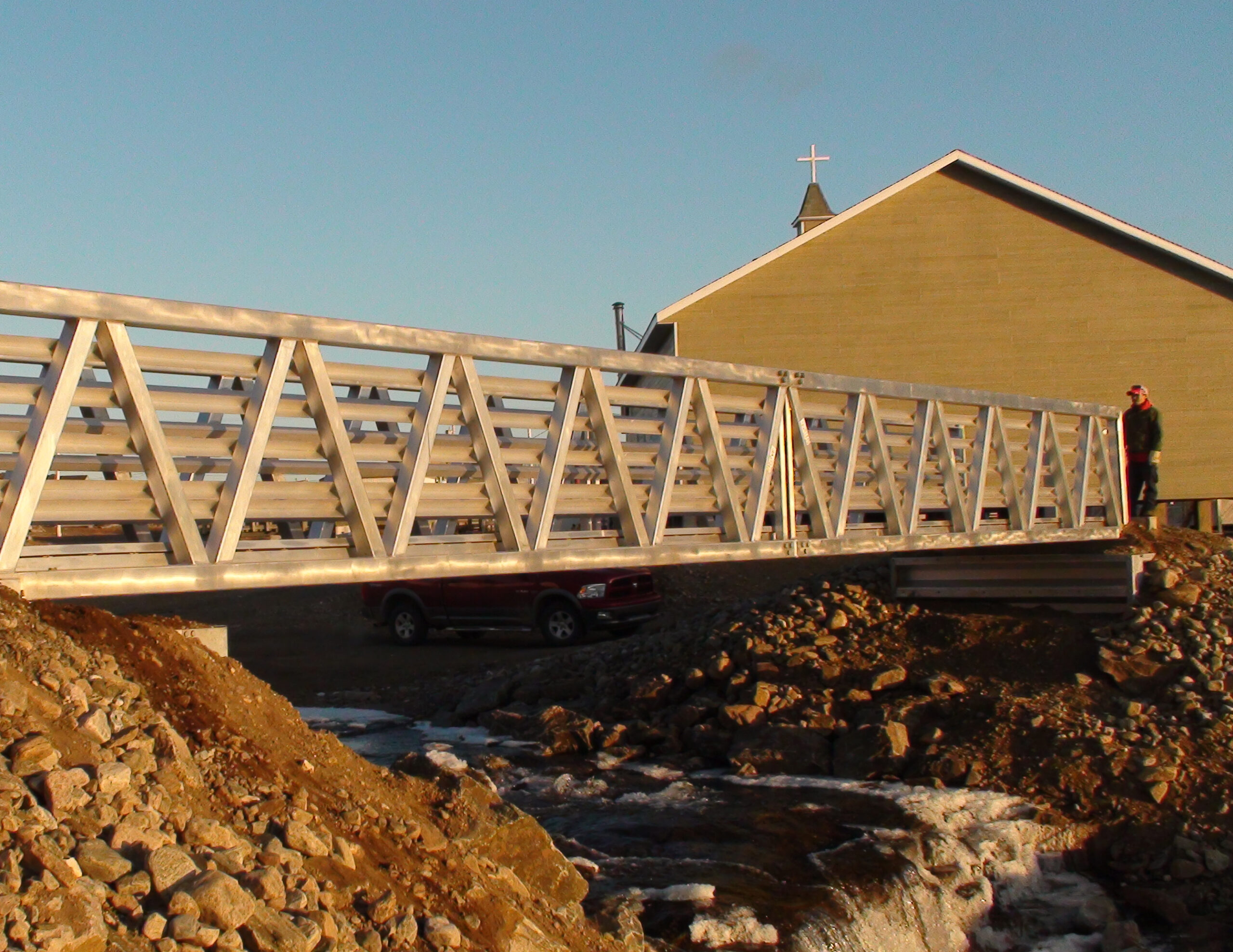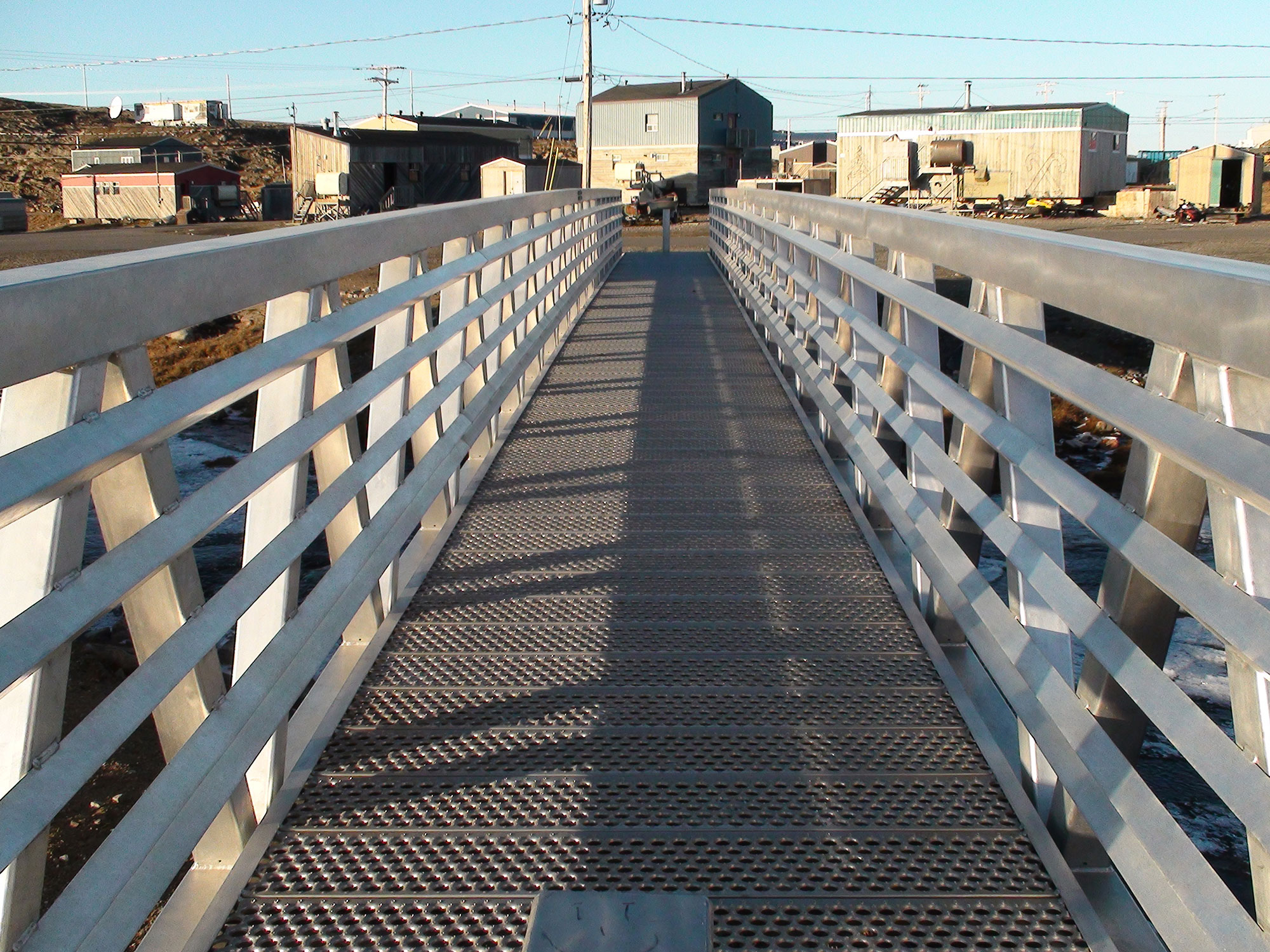The MAADI Group engineering firm announces the installation of two all-aluminum pedestrian bridges in the village of Quaqtaq in Northern Québec along the eastern shore of Diana Bay in Inuktitut, offering convenient access and sustainable long-term infrastructure to village residents and visitors.
OCTOBER 24, 2011—MONTREAL, CANADA – The bridges link two areas of Quaqtaq divided by a river crossing the town; one bridge diverts pedestrians away from a nearby narrow vehicle bridge, while the other footbridge safely connects homes and a church to Quaqtaq’s nursing and medical center.
The 30-meter and 18-meter-long aluminum pedestrian bridges were chosen for Quaqtaq by the Kativik Regional Government’s Municipal Public Works Department to provide residents with cost-efficient access using a low-maintenance aluminum bridge design. Each warren pony-truss bridge was spliced and packed into two coupled sections, loaded onto barges aboard a cargo ship, then unloaded on the beach and moved across town using a community loader, where the bridges were assembled and installed on-site.
Aluminum’s light weight made transporting and installing the bridges a smooth process during the summer when Quaqtaq temperatures reach 19°C (66°F). Engineer and Project Manager Simon Ricard explains that no specialized labor or heavy equipment were required, “Since cranes are not available in this remote community, bridge sections were assembled and brought on the modular prefab abutments using a loader at one end and an excavator at the other. The fact that the bridges are light aluminum helped us to manipulate them even with limited size equipment. Residents were pleasantly surprised and proud that the installation went very well and was completed so quickly.”
The 18-meter and 30-meter footbridges offer twice the thermal expansion of a steel bridge, varying in overall length by up to 30 and 50 millimeters respectively, depending on summer-to-winter temperature variations. “We were looking for prefab, easy-to-install galvanized steel bridges, but after analyzing MAADI’s proposed aluminum bridges, we realized that for the same price, aluminum was the better option for us. It was meeting all our requirements with an even more durable metal, and it is a much lighter product to handle,” says Ricard. The 18M (60-foot) bridge weighs 1800kg (4,000 lbs.) with a live load deflection less than 36mm, and the 30M (100-foot) bridge weighs 2700kg (6,000 lbs.) with live load deflection less than 60mm, with overall load capacity of 4.0 kilo Pascal (85 pounds per square foot), according to Canadian bridge codes.
The corrosion-free tubular extruded aluminum sections feature longitudinal guardrails with maximum openings of 150mm (6 inches). In extreme weather conditions, the aluminum bridges withstand wind gusts of up to 130 kilometers per hour (90 miles per hour). The light, durable aluminum components require no protective coatings or finishes, and include anti-slip aluminum safety grating used for the floor decking.
The aluminum bridge structures achieve maximum performance in winter, when the average daily temperature drops by as much as 64°C (115°F), reaching sub-zero levels of -45°C (-49°F). Under such temperature conditions the aluminum components actually gain structural strength, and are impervious to snow, ice and wind. Ricard cites the inspiration for choosing aluminum bridges, “Up north, aluminum has proven to be efficient in many applications, including boats, planes and snowmobile components.”
The unique mill-finish aluminum surface allows easy removal of graffiti, compared to maintenance/repair costs for a graffiti-damaged galvanized steel bridge. Ricard notes, “If graffiti is made on a painted or galvanized steel surface, it is impossible to remove without exposing the steel to rust. With aluminum, graffiti is removed with a metal brush, and the metal already has a new protective finish – the aluminum itself.”
Heavy winter snows in Quaqtaq required MAADI Group to design built-in snow removal into the aluminum bridges’ floor decking planks. Each 12-inch-wide x 6-foot-long (305mm x 152mm) aluminum 5052 H32 alloy safety grating plank is 0.125” (3.2mm) thick, and has 228 1-1/4” (32mm) diameter hole punches running transversally to the bridge, allowing snow to drop through the decking without using melting agents. Ricard touts the benefits of the floor decking design: “The walking platform composed of special aluminum sheet prevents snow accumulation, making the bridges truly maintenance-free.” This built-in snow removal system eliminates maintenance and naturally preserves the winter environment, posing no danger to pedestrians or native wildlife.
“MAADI Group has worked closely with the Kativik Regional Public Works department to build the most practical and functional footbridges possible for those who live and work in the village of Quaqtaq. We are pleased to bring a cost-conscious and real-world civil engineering project to this remote area of northern Québec,” de la Chevrotière notes.
“Establishing better access in Quaqtaq with our aluminum pedestrian bridges enables residents and visitors to utilize and connect to essential village institutions and services, without the high maintenance costs typically associated with steel bridge structures. Our aluminum footbridge design will serve Quaqtaq well for many decades, virtually maintenance-free. MAADI Group is committed to delivering modern bridges made from sustainable and recyclable aluminum that are transforming pedestrian bridge infrastructure throughout North America and around the world,” says de la Chevrotière.




